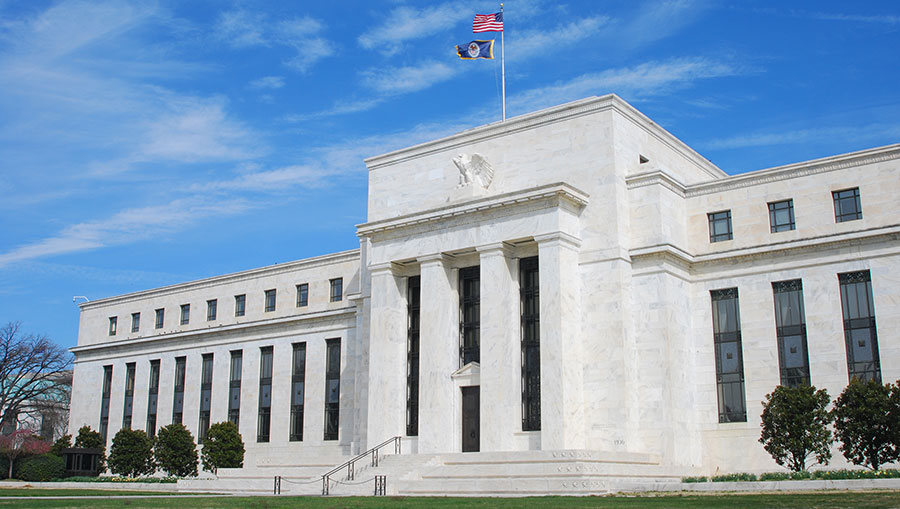Personal Wealth Management /
Greece Makes a Comeback
Last week, Greece completed its first five-year bond issue since its bailout—a testament to the country’s progress.
A brand new security took markets by storm last week—and we aren’t talking about some hot IPO. Nope, we’re talking about the first new Greek long-term bond since pre-bailout times. On Thursday, Greece put a little over €3 billion in five-year bonds on the auction block—and demand was sky-high. Sure, it’s just one bond—but the clamor speaks to just how far Greece has come. Investors’ confidence, so shattered during the sovereign debt crisis, has firmed up, putting to rest fears of the eurozone’s untimely collapse.
To say Greece has had a long, hard road is an understatement. Its first bailout came in 2010, but its economy started to tank in 2008. What happened after is a true Greek tragedy. A quarter of its economy wiped out during six years of full on depression. Borrowing costs soaring above 30%. Two bailouts. Two defaults. Massive job losses. Political turmoil, complete with a violent fascist uprising courtesy of the neo-Nazi Golden Dawn party. Even one year ago, it seemed the troubles would never end. Leaders were mulling a third default. EU officials said the country still had to make tough adjustments. 10-year yields were still double digits. At the end of 2013, when Greece’s Prime Minister said his country would exit its bailout plan on schedule in 2014, most thought he was nuts. But, as the old proverb goes, it’s often darkest just before the dawn.
The first rays of sunlight appeared in January, when Greece’s manufacturing PMI showed growth for the first time in 53 months. Public finances showed signs of improvement, with officials tipping a primary budget surplus for 2013, and that bailout exit suddenly didn’t seem so crazy. Early this week, Greece auctioned off €1.3 billion in short-term bonds at 3.01%—more than half a point lower than last month’s sale.
With markets looking increasingly confident, Greece’s Treasury decided it was time to test the market’s appetite for long-term debt. Short-term debt is one thing—not much default risk since they can just roll it over again and again. But long-term debt is a different animal—less than two years ago Greece defaulted twice on longer maturities, punishing private investors with over 70% in principal losses. Would folks have enough confidence in Greece’s progress since then to take a flier given this recent history? Evidently, they do! Demand was over six times the amount on offer, and investors bid yields down to 4.95%—in line with pre-crisis levels. Yes, folks are lining up to buy securities that less than two years ago were largely wiped out, and they aren’t demanding a huge premium to own it. If that doesn’t confirm the risk of Greece shattering the eurozone is long gone, we aren’t sure what does.
Not that Greece has a clean bill of financial health. Some (particularly the IMF) are still worried over Greece’s high debt-to-GDP ratio of 172%. It’s certainly fair to say Greece still needs to get the public books in order. But the sheer size of its debt load isn’t a huge risk for either markets or Greece itself. Markets have long known Greece’s debt load is the size of Mt. Olympus, and they’ve proven perfectly capable of rising anyway. They also seem increasingly willing to give Greek officials time to cut things down to size. As long as officials can continue demonstrating a credible fiscal approach, yields should stay manageable, buying the country plenty of time to work through those longer-term issues.
Time should stay on Greece’s side even if it needs EU/IMF funding after its official bailout exit, as the IMF claims it might. Help doesn’t automatically mean bailout #3, with a full long-term rescue package and austerity memorandum. It probably just means a precautionary line of credit. This simply gives Greece extra options—a lifeline it can tap if private demand looks a little iffy. If yields stay manageable, Greece wouldn’t have much reason to use that facility. Even if it does, debt is debt—whether Greece owes the IMF or private investors, the money still needs to be repaid. The source doesn’t much matter. Sure, there might be some sentiment implications—jitters over Greece not being “all the way back,” but consider the context. Not so very long ago, folks thought Greece would never come back. Even if it needs some external help once the bailout is officially done, that’s still way ahead of expectations.
Which speaks to the broader takeaway here—Greece’s successful auction is a clear indication the market’s fears of a disorderly eurozone breakup have all but completely dissipated. Officials are still haggling over longer-term issues like the banking union, but like Greece’s big debt, these issues likely simply fade into the longer-term backdrop of the eurozone. With yields across the periphery approaching historic lows, countries seem quite capable of staying afloat while that squabbling plays out.
To investors who want to retire comfortably. Download the guide by Forbes columnist and money manager Ken Fisher's firm. It's called "The 15-Minute Retirement Plan." Even if you have something else in place right now, it still makes sense to request your guide!
If you would like to contact the editors responsible for this article, please message MarketMinder directly.
*The content contained in this article represents only the opinions and viewpoints of the Fisher Investments editorial staff.
Get a weekly roundup of our market insights
Sign up for our weekly e-mail newsletter.

You Imagine Your Future. We Help You Get There.
Are you ready to start your journey to a better financial future?

Where Might the Market Go Next?
Confidently tackle the market’s ups and downs with independent research and analysis that tells you where we think stocks are headed—and why.





